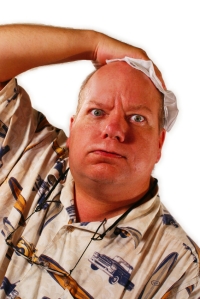 While not obvious to everyone, how much you sweat, or not, is important in understanding skin disease. Sweating is our body’s method of venting off the excessive build up of heat and is a healthy means to keep our body in a balanced state of equilibrium. However, too much sweating, or not enough sweating, may actually aggravate a pre-existing disease, or even create a new one. Understanding how one sweats is important when diagnosing anyone with a skin disease, at least from the Chinese medicine point of view it is.
While not obvious to everyone, how much you sweat, or not, is important in understanding skin disease. Sweating is our body’s method of venting off the excessive build up of heat and is a healthy means to keep our body in a balanced state of equilibrium. However, too much sweating, or not enough sweating, may actually aggravate a pre-existing disease, or even create a new one. Understanding how one sweats is important when diagnosing anyone with a skin disease, at least from the Chinese medicine point of view it is.
Think about it, if you sweat too much (particularly when you sleep), your skin will be left damp, possibly aggravating, or inviting, skin issues like eczema to flourish. On the other hand, the inability to sweat properly will leave the body greatly overheated, particularly the skin, which may then lead to the more drier forms of eczema. Since antiquity, Chinese medicine has placed great emphasis on the ability for a patient to sweat. If a patient suffers with eczema that is quite swollen, wet, and red, we may decide that this particularly patient suffers with a build up of pathological fluid, which may then be drained through the use of herbal medicines activating urination. If the skin is quite red, itchy, and dry, but the patient finds it hard to sweat, even though they may be totally overheating, then we could say that heat has lodged in the skin and has not been able to be properly discharged. Chinese herbal medicines may then be used to help open the pours so as to allow the heat to properly disperse.
It is also good to look at the type of materials worn against the skin, as many synthetic fibres may prevent the skin from breathing properly, thus allowing the skin to heat up unnecessarily. Cotton, flax and hemp are obviously the best to wear right against the skin, especially if you suffer with skin disease. This goes for overly thick moisturizing creams, such as vaseline which, while helping lock moisture in by creating occlusion, will also prevent the skin from breathing, particularly when it comes to sweating. Over use of vaseline is very common with patients, particularly with parents trying to help their young children. By smothering their children with too thick of moisturizer, the child may easily over heat, with their skin worsening and their mood turning into an agitated bomb shell!
Interestingly enough, the patient I saw today found this out all by their self. Several months ago this patient started developing a patch of eczema on their neck, for which they feared would spread to the rest of their body, particularly their face. As a preventative measure, this patient started slapping on creams (very similar to vaseline), with the thinking that this would help. On the contrary, the patient quickly worsened, with their entire upper body becoming very very inflamed and red. More thick moisturizer was applied, even more often, and the skin kept worsening, until one day this patient decided to just stop applying anything at all to their skin. Soon after, this patient experienced intense night sweats for several days, which was very unusual for them as sweating was usually non-eventful. The end result was that the majority of the redness dissipated and the eczema started to calm down all on its own. The thick moisturizing cream had blocked this patient’s natural healing method of clearing away excessive heat through her skin, allowing it to build up to the point of worsening their pre-existing eczema.
By understanding sweating, Chinese medicine physicians trained in dermatology can often help the most stubborn of skin conditions. Either by educating on the proper use of different moisturizing creams, or through the use of herbal medicines aimed at helping the body regulate any build up of unwanted heat and moisture.
Wishing you the best of health,
Dr. Trevor Erikson
